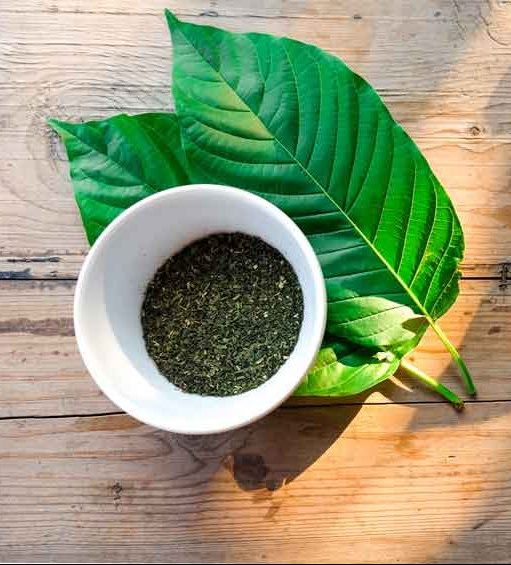IS KRATOM LEGAL IN CALIFORNIA?

Kratom, derived from the Mitragyna speciosa tree native to Southeast Asia, has sparked considerable debate in recent times. While the plant has been used traditionally for various purposes in the regions where it originates, kratom’s popularity in the United States has raised questions regarding its legality across different states, including California.
Kratom Legality in the United States
To comprehend the legal status of kratom in California, it’s important to understand the broader context of kratom regulation in the United States. At the federal level, kratom is not classified as a controlled substance, which means there is no nationwide prohibition on its sale, possession, or use. However, individual states have the authority to regulate substances within their jurisdiction, leading to varying legal statuses for kratom from state to state.
Federal Agencies and Kratom
The US Food and Drug Administration (FDA) and the Drug Enforcement Administration (DEA) are two federal agencies that monitor kratom use and its potential impact on public health. Although the FDA has not approved kratom for any medical use, it has issued several warnings and alerts about potential risks associated with kratom consumption. The DEA, on the other hand, has contemplated classifying kratom as a Schedule I controlled substance, effectively banning it nationwide. However, significant opposition led the DEA to withdraw its intent to schedule kratom in 2016, pending further research.
Without federal regulation, state governments have addressed the issue of kratom legality within their borders. This has resulted in a mosaic of laws and regulations that can differ greatly between states, ranging from unrestricted access to kratom to age restrictions, consumer protection measures, and outright bans.
State-Level Legislation and Kratom
While kratom remains legal at the federal level, state governments have taken various approaches to regulating the substance. Some states have banned kratom entirely, while others have implemented age restrictions or regulations on its sale and distribution. The diverse legal landscape at the state level highlights the ongoing debate surrounding kratom and its potential benefits and risks.


Kratom’s Legal Status in California
Kratom is currently legal in most of California. The sale, possession, and use of kratom face no specific restrictions within the majority of the state. However, local regulations in some areas have impacted the legal status of kratom.
In the city and county of San Diego, California, more restrictive measures have been enacted. In 2016, the San Diego City Council banned the sale, possession, and distribution of kratom within its jurisdiction. The ban extends to the entire county, making San Diego the only area in California where kratom is illegal.
Outside of San Diego, kratom remains widely available and unrestricted throughout the rest of California. Numerous vendors across the state offer kratom products, and there are no age restrictions or specific regulations governing its sale, possession, or use.
The Role of Kratom Advocacy Organizations in California
Advocacy groups, like the American Kratom Association (AKA), have played a significant role in shaping the legal landscape surrounding kratom in California and other states. The AKA is a nonprofit organization that champions the rights of kratom users and supports responsible regulation of the substance. The organization has led efforts to educate lawmakers, regulators, and the public about kratom and its potential advantages.
In California, the AKA has actively participated in the legislative process, offering testimony, resources, and support to lawmakers as they deliberated on the appropriate regulatory approach for kratom. The organization’s efforts have contributed to maintaining the legal status of kratom in most of the state and preventing the classification of kratom as a controlled substance.
Additionally, the AKA has established its Good Manufacturing Practices (GMP) program, setting standards for kratom vendors to ensure product safety and quality. Vendors who participate in the AKA’s GMP program are subject to regular audits and must adhere to strict manufacturing and testing protocols. This program has helped elevate the kratom industry’s standards and has likely influenced the development of manufacturing standards and quality assurance practices within the California kratom community.
Besides the AKA, other kratom advocacy organizations, such as the Botanical Education Alliance and the Kratom Trade Association, have also played a role in shaping the legal landscape in California and across the United States. These organizations work to promote responsible kratom use, educate the public about the plant, and advocate for consumer-focused regulation that protects the rights of kratom users while ensuring the safety and quality of kratom products.
Kratom in California: A Cultural Perspective
The unique culture of California has substantially impacted the state’s viewpoint on kratom. With a firm foundation in individualism and personal freedom, Californians generally lean towards accepting kratom as a matter of personal choice, rather than an issue warranting strict government control. This cultural atmosphere has enabled the state’s relatively tolerant stance on kratom, as well as the plant’s growing appeal among its residents.

Kratom’s Legal Status in Neighboring States
It is worth noting the legal status of kratom in states neighboring California, as laws can vary significantly from one state to another. As of September 2021, kratom is legal in the following neighboring states:
- Arizona: Kratom is legal and unregulated, with no age restrictions in place.
- Nevada: Kratom is legal for individuals aged 18 and older, with the passage of the Kratom Consumer Protection Act in 2019.
- Oregon: Kratom is legal and unregulated, with no age restrictions in place.
The variation of laws and regulations surrounding kratom in neighboring states highlights the importance of staying informed about kratom’s legal status, particularly for those who may travel or live near state borders. It is essential for kratom users to be aware of the laws governing kratom possession and use in their respective jurisdictions to avoid potential legal issues.
The Future of Kratom Legality in California and Beyond
While kratom is currently legal in most of California, it is important to recognize that the legal status of kratom is subject to change. Lawmakers and regulators may revisit the issue in the future, particularly as more research on kratom becomes available or in response to public health concerns.
It is essential for kratom users, vendors, and advocates to remain engaged in the legislative process and to stay informed about any potential changes to the legal status of kratom in their state. This includes participating in public hearings, contacting elected officials, and supporting advocacy organizations that work to protect the rights of kratom users.
Moreover, the kratom community must continue to promote responsible use and self-regulation, both in California and nationwide. This includes adhering to the guidelines and requirements outlined in any kratom consumer protection laws or regulations, as well as supporting vendors who participate in quality assurance programs such as the AKA’s GMP program. By demonstrating a commitment to safety, quality, and responsible use, the kratom community can help to ensure the continued legality of kratom in California and beyond.

So Is Kratom Legal in California?
In summary, kratom is legal in most of California, with specific restrictions on its sale, possession, and distribution within the city and county of San Diego. The legal status of kratom in California has been shaped by various legislative and regulatory efforts at the local level, as well as the ongoing efforts of kratom users, vendors, and advocacy organizations to engage in the legislative process and promote responsible use.
As the legal landscape surrounding kratom continues to evolve, both in California and across the United States, it is crucial for kratom users, vendors, and advocates to remain vigilant and engaged in the legislative process. By staying informed about the legal status of kratom, participating in public discourse, and promoting responsible use, the kratom community can help shape a more balanced and rational approach to kratom regulation.
California has long been known for its diverse and progressive culture, and the state’s approach to kratom regulation is no exception. As kratom continues to gain popularity and acceptance, it is crucial to maintain an open dialogue about its legal status, and ensure that any changes to the law are based on accurate information and sound policy. By working together, the kratom community and California lawmakers can strive to create an environment where responsible use is encouraged, consumer safety is prioritized, and the rights of kratom users are protected. The ongoing conversation surrounding kratom legality in California, as well as in other states, serves as a reminder of the importance of engagement and vigilance in shaping the future of kratom regulation in the United States.
Where to Buy Kratom in California?
California offers a variety of options for purchasing kratom products. Here are some tips for buying kratom from various types of vendors in California:
- Local Smoke Shops and Vape Stores: Many smoke shops and vape stores in California carry kratom products. Be sure to check customer reviews and ask for recommendations to find a reputable store.
- Specialty Shops: Some specialty stores focusing on herbal products and supplements also stock kratom. These shops are more likely to have knowledgeable staff who can guide you in selecting the right product for your needs.
- Online Shopping: Purchasing kratom online offers a wider variety of products at competitive prices. Make sure to choose a reliable vendor that is cGMP certified and conducts quality testing.
The Best Place to Buy Kratom in California
When it comes to buying kratom products, Topline Kratom is the ultimate online destination. Here are some reasons why we stand out from the rest:
- Variety: Topline Kratom offers a wide range of kratom products, including kratom extracts, kratom capsules, kratom powder, kratom tablets, and even some delicious kratom coffee. With such a diverse selection, you’ll be sure to find the perfect product for your needs.
- Quality: Our products undergo the most rigorous quality control measures in the industry. Each batch undergoes a comprehensive examination and laboratory analysis by an accredited lab to detect any impurities or contaminants. Topline Kratom is proud to exceed Current Good Manufacturing Practices (cGMP) standards, which means that our production and manufacturing processes meet and exceed the highest standards of quality, purity, and safety.
- FREE Shipping: At Topline Kratom, we believe in providing the best value for our customers. That’s why we offer free shipping on all purchases over $100.
- Ethical Sourcing: We are proud of our dedication to ethical and sustainable sourcing methods. Our kratom is harvested meticulously from wild and renewable sources, prioritizing the preservation of the environment. Furthermore, we steer clear of regions treated with pesticides to ensure our customers receive the purest premium-grade kratom.
When it comes to buying kratom in California, Topline Kratom is the go-to online destination. With our extensive product variety, commitment to quality, competitive prices, fast shipping, and ethical sourcing, you can confidently purchase kratom products knowing that you’re getting the best. Give Topline Kratom a try and experience the difference for yourself.
This article is based on publicly available information at the time of writing and is intended for informational purposes only. The legal landscape surrounding kratom, including rules and regulations, is subject to change. As such, readers are advised to always consult with their local government and local news organizations for the most up-to-date and accurate information regarding any changes to rules and regulations related to kratom in their area. The content provided in this article should not be considered legal advice or a substitute for professional guidance.
